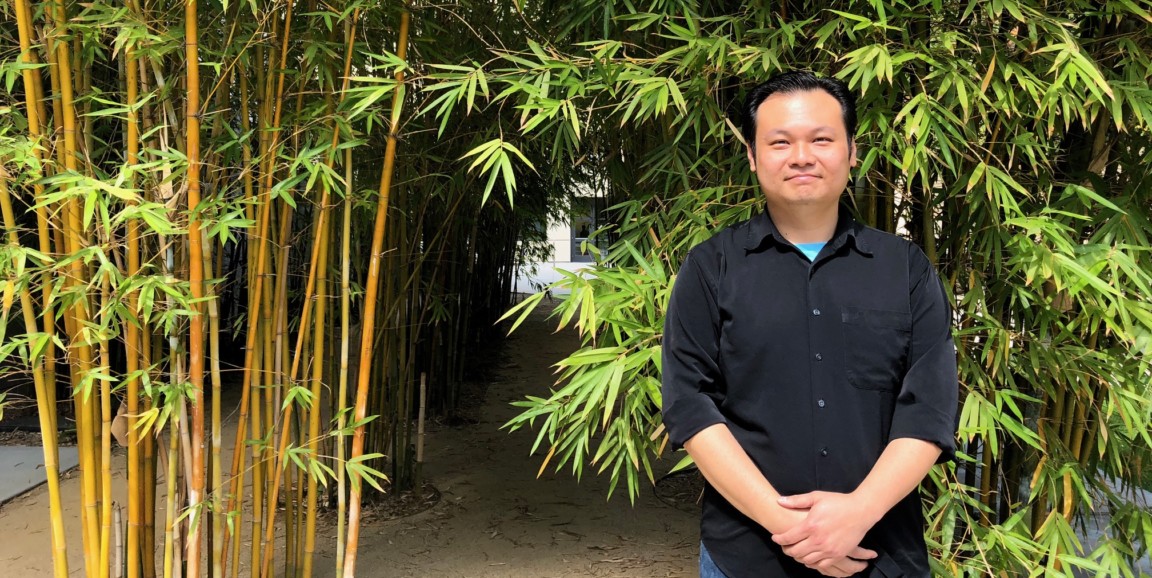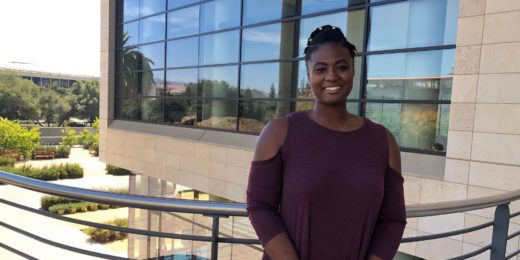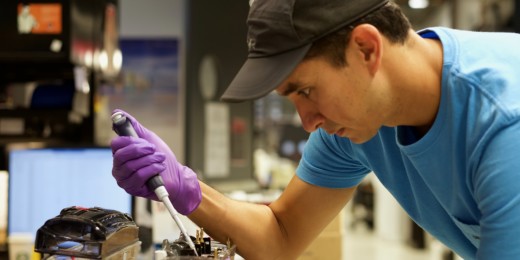When postdoc Yaw Shin Ooi, PhD, isn't in the lab, you may find him birdwatching on campus, or perfecting his Chinese calligraphy. Ooi's love for science has taken him around the world -- from his home in Malaysia, to New York, to the Bay Area, where he came to accept a position at Stanford as a postdoctoral fellow in microbiology and immunology.
When we talked, he shared his experiences in science, and reflected on how he remains positive and grounded in day-to-day life. Here's a closer look:
When you came to Stanford in 2015, was that your first on the West Coast?
Yes. When I came to California for my postdoc interview, I was in awe of the beautiful weather and still am. I love the West Coast and the quality of life here. Living in New York was so different because your time outdoors is limited, so my family -- I have a wife and two kids -- and I are very happy here being able to spend more time outdoors.
Why did you decide to pursue science?
I completed my undergrad in Malaysia, and majored in genetics. I did an internship at a forensic lab for the Malaysian government where I got to help with the Malaysia criminal database for criminal investigation cases. It was kind of like 23andMe, but for the government.
I met a lot of very nice professors there who encouraged me to keep pursuing science. So when I moved to America, after my first job in New York as a tech, I decided to pursue a PhD.
What are you working on today?
I study the interplay between viruses and humans. We are using genome-scale approaches to look for human proteins that are hijacked by viruses. If we can identify the mechanisms and patterns through which viruses attack our bodies, we can hopefully block them.
What does a usual work day look like for you?
Normally I wake up around 5 a.m. and prepare breakfast for my family, then take my kids to school. I try to spend most of my time during the week at work, then dedicate my weekends to my family.
During the day, we have lots of meetings with collaborators, we attend seminars and meet with people from different labs to bounce off ideas and discuss experiments, and of course, most of the time we're on the bench doing lab work.
What's bench work like for you?
You have to be able to sit down for long periods of time and do all the tedious work required to pursue answers. I think science is like meditation, you need to be able to focus.
Why did you choose to come to Stanford?
I really like working with my current mentor, Jan Carette, PhD, who is an expert in the field. I feel like I'm learning from an expert, and I'm in a place with all the resources and expertise to do the best science I possibly can.
As a family, we're struggling to live in the Bay Area because it's so expensive and I'm the only one who works. Even though it's hard, being able to be in this environment and pursue science is totally worth it.
How do you unwind?
I do a lot of walking. I take the train to work every day, but instead of taking the shuttle to campus, I walk. That way, I also get to do some bird watching on the way to work.
Do you have any other hobbies when you're not in the lab?

I'm a part time Chinese calligrapher. Chinese calligraphy is a unique form of art -- the world of black and white. It's not about how to fill up the blanks with multiple colors. It is all about a balance between presenting a message using different forms and sizes of strokes in a single black color and optimal occupancy of the empty space in white
(An example of Ooi's work is pictured at right. It says "to lead a stoic life" with his signature at the bottom; it quotes Zhuge Liang and is written the clerical script style.)
Do you have a role model?
I admire Buddha a lot. I'm a Buddhist, and the teachings, always aiming for inner peace is something I try hard to pursue in my daily life. When I work long hours, I always aim to be focused and positive.
What is your ultimate goal?
Currently, I see myself in an academic position. I enjoy teaching, but I want to be primarily in the lab. Regardless, I see teaching as the responsibility of scientists, to pass on our knowledge and foster passion in our students that want to pursue science. It's important to pass things on.
In the Spotlight features standout scholars in the School of Medicine.
Photo by Roxanne Ohayon






